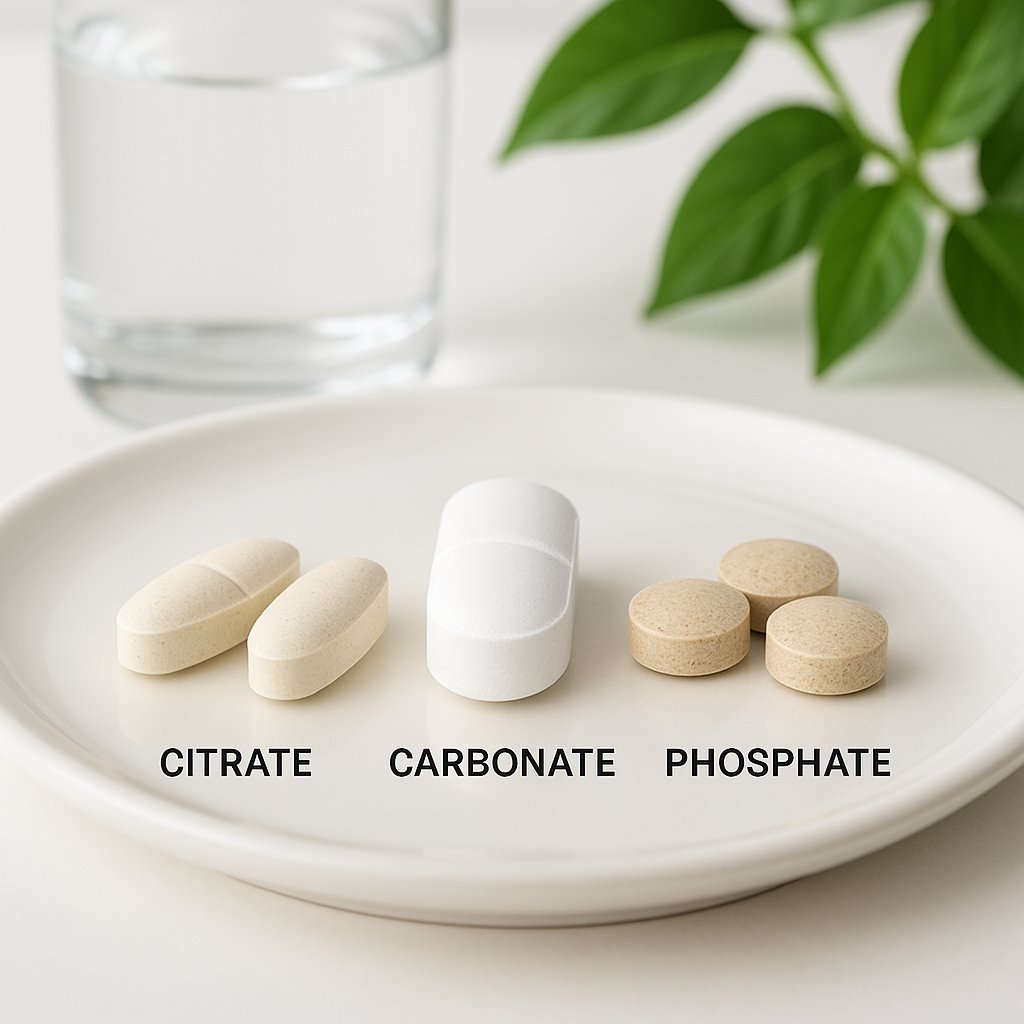The easiest calcium supplement on the stomach is usually calcium citrate. Unlike calcium carbonate, which can cause bloating and constipation, calcium citrate is gentle, well-absorbed with or without food, and less likely to cause digestive issues. Understanding which form of calcium is best tolerated is crucial for anyone with a sensitive stomach, history of GI problems, or who needs to take calcium long-term.
This guide breaks down the best calcium supplements for stomach sensitivity, explains the pros and cons of each type, shares up-to-date prices, and links to authoritative sources for more information. Whether you have digestive concerns, take acid blockers, or just want to avoid discomfort, this article covers all you need to know.

What Makes a Calcium Supplement “Stomach-Friendly”?
Calcium supplements can cause side effects like constipation, bloating, or gas—especially if you choose the wrong form. Here are the key factors affecting tolerance:
- Type of calcium salt (citrate, carbonate, lactate, phosphate)
- How the supplement is absorbed (with or without food)
- Digestive health and medications (acid reducers, PPIs)
- Elemental calcium content (dose per tablet)
Choosing the right supplement can make a major difference in comfort and absorption.
Best Calcium Supplement for Sensitive Stomachs: Calcium Citrate
Why Calcium Citrate Is Preferred
Calcium citrate is widely recommended for sensitive stomachs because:
- It does not require stomach acid for absorption (ideal for those on antacids/PPIs).
- It’s gentler than calcium carbonate—fewer reports of constipation, gas, or bloating.
- Can be taken with or without food (Harvard Health, 2024).
- Good for people over 50, or anyone with digestive issues.
Quick Tip: If you have a sensitive stomach, history of GI problems, or take acid reducers, start with a reputable calcium citrate supplement.
Other Stomach-Friendly Calcium Options
Calcium Lactate and Calcium Gluconate
- Both are gentle, highly soluble, and rarely cause digestive upset.
- Less elemental calcium per pill, so you may need to take more tablets.
- Often recommended if you can’t tolerate citrate or need low-dose calcium (Mayo Clinic, 2025).
Calcium Phosphate
- Less likely to cause constipation than carbonate.
- Provides additional phosphorus, which some people may need.
- More expensive and less commonly available in the U.S. (US Pharmacist, 2025).
Calcium Carbonate: Effective, but Not the Best for Digestion
Calcium carbonate is the most common and affordable supplement, but:
- It’s more likely to cause constipation, bloating, and gas.
- Needs stomach acid to absorb—must be taken with food.
- High elemental calcium per pill (40%), so fewer tablets needed.
- Best for those with no history of digestive sensitivity (GoodRx, 2024).
Price Comparison and Dosage
| Supplement Type | Average Price (USD) | Dose (mg/tablet) | Stomach Tolerance |
|---|---|---|---|
| Calcium Citrate | $12–$18/100 tablets | 250 | Excellent |
| Calcium Carbonate | $8–$14/100 tablets | 500–600 | Moderate/Poor |
| Calcium Lactate | $15–$22/100 tablets | 150 | Excellent |
| Calcium Phosphate | $18–$25/100 tablets | 200 | Very Good |
Prices sourced from Amazon, CVS, and Walgreens listings, July 2025.
Official Policy and Guidance
For the most accurate, up-to-date supplement information:
- Harvard Health – Choosing a Calcium Supplement
- Mayo Clinic – Calcium Supplements: Do’s and Don’ts
- US Pharmacist – Pros and Cons of Calcium Supplements
If you have chronic digestive issues, kidney disease, or take other medications, always consult your healthcare provider before starting a calcium supplement.
Frequently Asked Questions
What is the best calcium supplement for someone taking acid reducers?
Calcium citrate is best, since it doesn’t need stomach acid for absorption (Harvard Health).
Can you take calcium on an empty stomach?
Calcium citrate, lactate, and phosphate can be taken with or without food. Calcium carbonate should always be taken with food.
How can I reduce constipation from calcium?
- Choose citrate, lactate, or phosphate instead of carbonate.
- Split your daily dose into two smaller servings.
- Drink plenty of water and add magnesium or vitamin D, if recommended by your doctor.
Are there vegan or plant-based calcium supplements?
Yes! Many calcium citrate and calcium alginate (from seaweed) supplements are vegan and gentle on digestion (Healthline, 2025).
Conclusion
If you want the easiest calcium supplement on your stomach, choose calcium citrate. It’s recommended by experts for its gentle absorption and minimal GI side effects. If you need alternatives, calcium lactate and phosphate are also excellent choices for sensitive stomachs. Always read labels, check for certifications, and consult your healthcare provider for personal recommendations.
